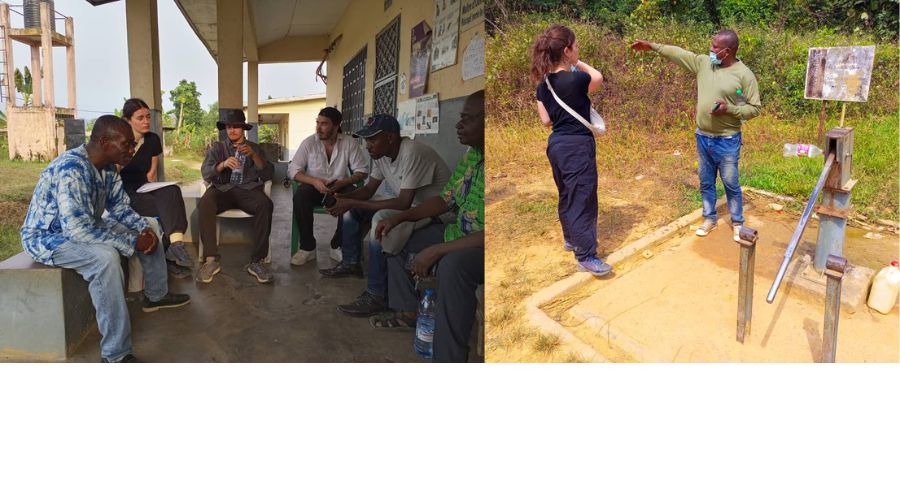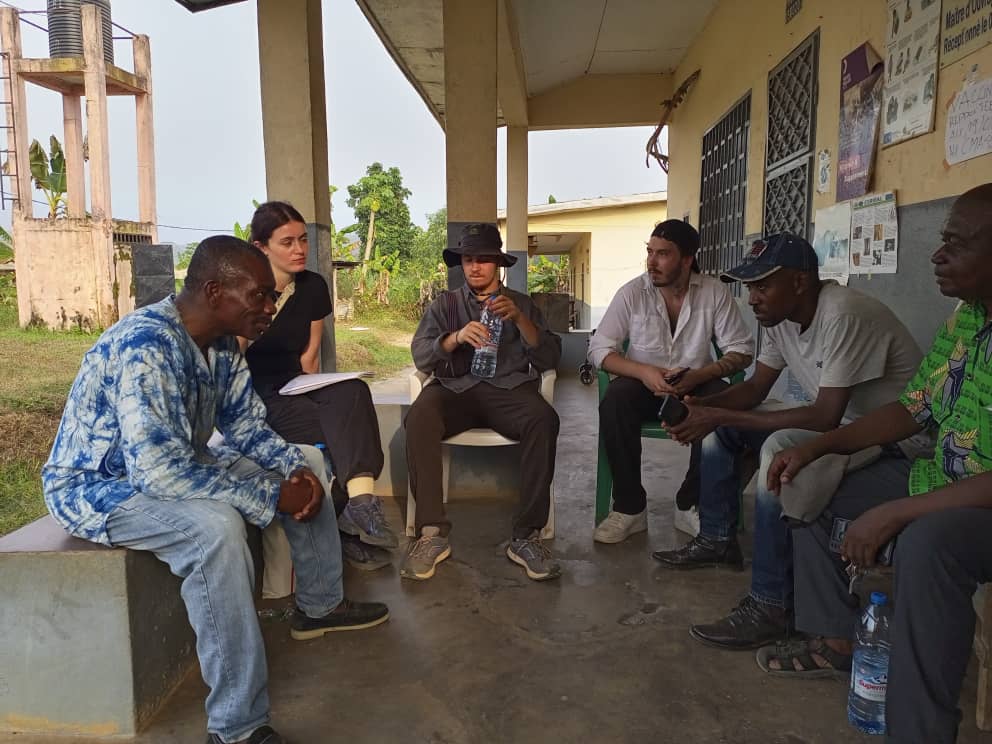Discussions on a potential project in Cameroon
Mission in Cameroon – January 26 to February 2
With a view to extend its field of action in water supply and sanitation to populations in need, a project manager from HAMAP-Humanitaire carried out her first mission to Cameroon from January 26 to February 2, in order to respond to the problems of water access in the country.
The current situation in Cameroon regarding access to water and sanitation:
Cameroon has a wide range of water resources, but they are unevenly shared, particularly between urban and rural areas. Despite considerable potential, water quality remains a major concern, and groundwater is difficult to mobilize in most regions. In addition, the country is faced with the occurrence of floods and droughts as a result of climate change.
This situation regarding water access leaves the population as a whole in a state of neglect of any real planning. As for sanitation, the few collective facilities in the major towns are struggling to function in the absence of an efficient operating system. We can also highlight the central issue of water resource analysis and quality. Although over 35% of the rural population has access to water, its quality is not always fit for consumption.
The mission:
Faced with these alarming realities and challenges, this mission led by HAMAP-Humanitaire’s WASH project manager provided an opportunity to take stock of potential ways of helping the populations affected by this situation.
A first exchange was initiated with a project of the Cultude association: the Mapubi association, based in Edéa, is a center specializing in cultural, sporting and educational activities. The aim was to draw up an organizational diagnosis of the structure, and then to consider how tasks linked to the global and local coordination of the project would be distributed, and to initiate discussions concerning the capacity-building activities that could be put in place.
The second phase of this mission was devoted to visiting the areas targeted by the project in the commune of Massock Songloulou (Songmbengué, Kahn, Onna, Pendjock) to take stock of the situation prior to contracting the consultancy firm to assess the responses to water and sanitation issues. The aim was to size the perimeter of the potential future project. A number of problems were identified. For example, some villages have around twenty human-driven pumps (HMPs), but the water is not drinkable. The population therefore prefers to use river water for drinking, and PMH water only for cooking, leading to frequent water-borne illnesses such as diarrhea and salmonellosis, particularly among children.
What’s more, water treatment adds a household chore for women, who don’t have the time to treat the water in advance, generating the gender issue in water access. Other problems are present in other areas, such as the village of Ohnna, which has a single water point (PMH) for around 400 people, or Pendjock, a village in which the school has no access to water and no latrines.
The final stage of this mission involved meetings with a number of institutional players, notably the departmental water delegate, but also with other NGOs in the sector, such as the Alliance pour la maîtrise de l’eau, the Association pour la Solidarité et le Développement Durable (AS2D) and Demain Avenir. Exchanges with other NGOs in the sector for a possible consortium, such as Demain Avenir and AS2D (Association de la Solidarité et de Développement Durable), were also carried out.
The mission revealed that initiating a water and sanitation access project in Cameroon would open up the potential for partnerships with several NGOs and competent bodies, and enable mutual reinforcement of skills. Thus, for the implementation of the project to come, following exchanges with players in the sector, and faced with the constant of a very important involvement of communities in the face of a more mitigated presence of the authorities, an important reflection on the inclusion of stakeholders will be brought to the project.


